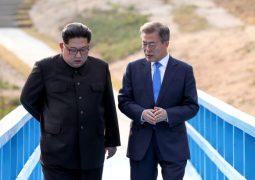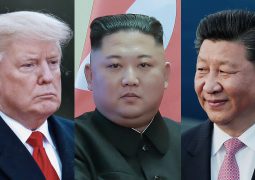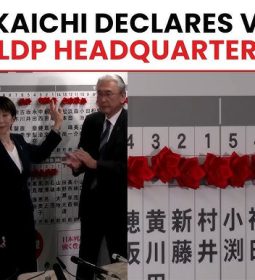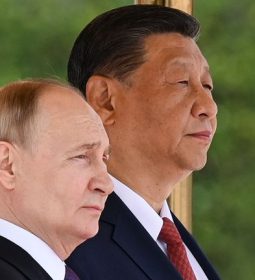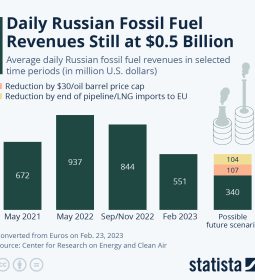US, S. Korea and Japan look to turn screw on Pyongyang
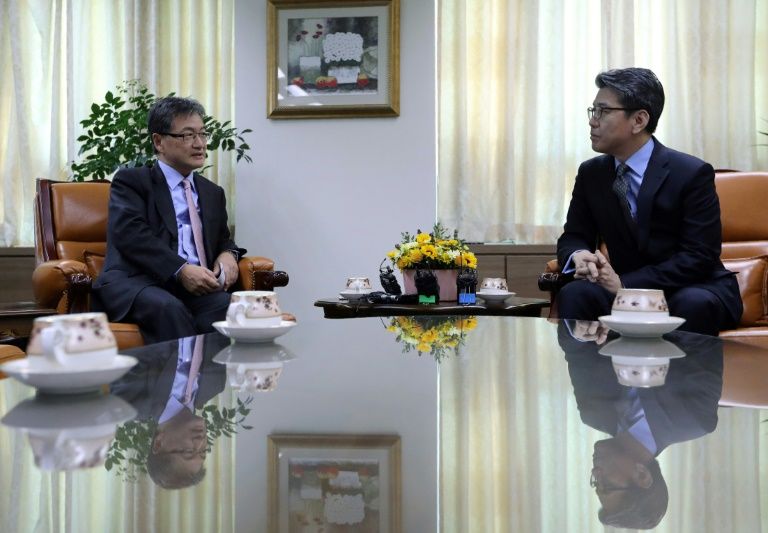
Senior US, South Korean and Japanese officials met on Monday to discuss how better to enforce international sanctions against North Korea’s nuclear weapon and ballistic missile programs.
The Washington talks came shortly after United Nations experts warned that Pyongyang has been flouting existing sanctions, and just as China’s top diplomat held talks at the White House.
US special representative for North Korea policy Joseph Yun met senior Japanese diplomat Kenji Kanasugi and South Korea’s special representative Kim Hong-kyun at the State Department.
In a statement, they condemned the North’s “flagrant disregard for multiple United Nations Security Council resolutions prohibiting its ballistic missile and nuclear programs.”
This, they argued, “requires strong international pressure on the regime” and they called on other countries to “fully and effectively implement their obligations” under UN resolutions.
This was a tacit appeal to China, overwhelmingly North Korea’s main trading partner, after a UN experts report last week warned that Pyongyang was getting better at sanctions busting.
Even as the allies met, China’s State Councilor Yang Jiechi was across town at the White House, meeting President Donald Trump’s senior foreign policy advisers.
After the talks, the councilor — who outranks China’s foreign minister — briefly met Trump himself, the most senior Chinese official to greet the new US leader since his inauguration.
Yang is due to meet US Secretary of State Rex Tillerson at the State Department on Tuesday.
Earlier on Monday, the European Union further restricted its own trade in coal, iron and iron ore and banned imports of copper, nickel, silver and zinc from North Korea.
In their statement, the United States, Japan and South Korea said they too would seek to cut “the revenue sources for North Korea’s weapons programs, particularly illicit activities.”
China shares US concerns about Pyongyang’s nuclear weapons, but prefers negotiations to tougher new sanctions, which it fears could destabilize North Korea and trigger a flood of refugees.
Beijing’s decision earlier this month to halt North Korean coal imports has been seen as an attempt to defuse criticism and nudge North Korea and the US toward negotiations.
But China has pushed back against Trump’s criticism that it has not done enough to bring its smaller neighbor to heel, insisting the conflict is at core one between Pyongyang and Washington.
The UN Security Council has imposed six sets of sanctions since Pyongyang first tested an atomic device in 2006.
But Kim Jong-Un’s isolated regime has continued to thumb its nose at the world with a series of missile launches over the years and two nuclear tests in 2016 alone.
And on February 13, Kim’s estranged half-brother was murdered with the banned VX nerve agent in an attack in Malaysia’s Kuala Lumpur airport that has been blamed on the regime.
- Previous UN condemns NKorea’s provocative attempts to evade sanctions
- Next Britain urges Malaysia to share evidence on Kim VX attack




